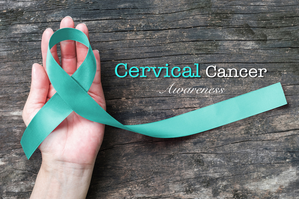New Delhi, 13 April (IANS). New research has shown that a parasite called Shistosomoma (which affects millions of people worldwide) can begin cancerous gene activities in the inner layer of women’s cervix (cervix). These changes become even more after treatment.
This important study was presented at the ‘ESCMID Global 2025’ program held in Austria. This shows that this parasitic disease, which is often ignored, can increase the risk of cervical cancer at molecular (molecular) level.
After treatment, some biological procedures in the body (eg inflammation, repairing tissue, and rupture of the cervical layer) became more active. Along with this, the formation of blood vessels, the acceleration of cancer processes and the decrease in the process that destroys abnormal cells (called apoptosis) was observed.
The lead writer of this study, Dr. Anna Maria Martellsman, said that this infection can begin such changes in women that make them more sensitive to cervical cancer, especially after treatment.
A worrying thing was also seen that after treatment, the genes that keep the cervix strong and safe became less active. This may increase the risk of HPV infection and long lasting, which is a main cause of cervical cancer.
Dr. Martellsman said that women who were given medicines named Sorrows were seen more changes in cancer related genes. This raises the question that what effects are there after a long time of treatment and whether women should be carefully monitored after treatment.
The study is published in a research journal called ‘Biond’ and this is the first step towards understanding the relationship between Schistosoma hematobium and cervical cancer. Right now there is another detailed study going on 180 women, which will last for 12 months.
In the future, it will also be seen whether this parasitic infection causes women to be infected with HPV for a long time and whether it increases the risk of cancer.
Researchers emphasized that it is very important to increase the information of female genital cystosomiasis (FGS) in women, as many women infected with hematobium also have this disease, which is difficult to identify.
Dr. Martellsman advised that there should be regular check -up of women infected with Schistosoma hematobium so that any abnormalities can be caught in time. He also suggested that drugs that reduce inflammation or balance the immune system may reduce the damage after treatment.
In addition, massive HPV vaccination can play an essential role in reducing the risk of cervical cancer, especially for women who have cystosomiasis.
-IANS
AS/
